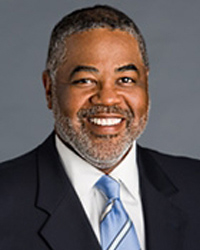Category: PDJ
Since its founding in 1995, GoodWeave has helped the number of South Asian children bound in carpet-making decrease by 75%, from 1 million to 250,000. Indian human rights activist Kailash Satyarthi founded the company after witnessing first-hand the profits made from rugs created by child labor. Satyarthi wanted to create a market for certified child-labor-free products, which would effectively end the easily-replaceable market for child labor.
We spoke to Dr. Paul White, psychologist, author, speaker, and consultant. White’s book, The 5 Languages of Appreciation in the Workplace, is in stores now.
It is important to create connections in which a sponsor is willing to go to bat for his or her protégée, be an advocate, and champion your advancement.
By Sunniva Heggertveit-Aoudia “Female entrepreneurs currently account for approximately a third of all entrepreneurs worldwide, and the U.S. Census Bureau predicts that by the year 2025, the share of women entrepreneurship in that country will increase to more than 55 per cent.” The Global Legal Post, April 2012. As a woman entrepreneur, my eyes are… Read the full article
Phyllis Stewart Pires- Vice President, Global Head of Diversity at SAP, a leader in the business software industry, with offices in over 80 countries- reflects on industry-specific global diversity challenges.
Fannie Mae Retiree led Fannie Mae’s Katrina Response and Low-Income Financing for Millions
It is well-known that English is no longer the most-spoken language in the world, beat out only by Mandarin Chinese. English, though, continues to be relevant in the global market.
VP of Editorial Services Damian Johnson spoke with author and diversity consultant Melissa Lamson, CEO and President of Lamson Consulting, discusses global diversity and business growth in the first of an ongoing series
If a company’s Diversity and Inclusion program is an integral part of its business strategy and anchored in leadership behaviors, than that company can weather the storm brought on by challenging economic times.
In times of economic distress it is essential for law firms to give attorneys with diverse backgrounds opportunities to thrive.








